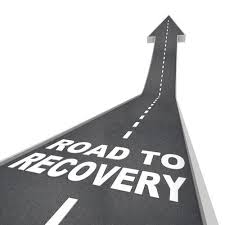Seeking alcoholism treatment in good time
Seeking alcoholism treatment in good time: Getting the best out of addiction treatment

Seeking alcoholism treatment in good time and knowing the right professionals to seek alcoholism and other drug addiction treatment from is very important in the overall recovery process.
We are taking a bit of our time in addressing the complications relating to drug addiction and more so when it comes to alcoholism because alcohol addiction is the leading substance of abuse currently. It is because of this background that we want to focus this discussion in knowing and seeking alcoholism treatment in good time so that a lasting solution can be attained. To do this effectively, we are going to be speaking to the professionals at AWAREmed Health and Wellness Resource Center the home of addiction solutions founded by doctor Dalal Akoury who is also the MD and President of the facility. According to the experts at this facility, the primary goal of alcohol addiction treatment is to deliver a lifelong commitment to abstinence from alcohol misuse. This is what we do professionally to our best and we believe that with good health, a strong support system and motivation, complete recovery is absolutely possible. Therefore if you or anyone you know is struggling with alcoholism, we want to bring to you the message of hope that this condition is treatable and we will be more than willing to help if only you can schedule for an appointment with us today by calling doctor Dalal Akoury on telephone number 843 213 1480. We want to assure you of our commitment in dealing with your situation in serious confidence and help you regain your health back to where it should be.
One of the primary problems with alcoholism is that it can often go undiagnosed despite being the most abused substance the world over. Nevertheless doctor Akoury reiterates that while there is no known cause of alcohol abuse or alcoholism, it is important to note that the quantity you drink can influence your chances of becoming dependent. The good news is that we now have a variety of brief and easy to use screening methods primarily designed to diagnose the problem of drinking and alcoholism and can be self-administered by a patient at the comfort of their homes. These are some of the efforts being made to help in containing the problem but all the same it is still important to acknowledge that typical treatment of alcoholism and even other substances can only begin when the alcoholic or the addict accepts the existence of the problem and is motivated to stop drinking of the habit. Up on acceptance, our team of experts will take you through the treatment process which often takes place in three levels including:
- Detoxification
- Rehabilitation and
- Maintenance of sobriety
These are very fundamental and each of them is providing an integral step in the process of successfully giving up alcohol which is our desired objective for you. We know that acknowledgement can be very difficult to many patients, but remember even just by considering visiting an expert is in itself a progress. So don’t be worried just schedule for that appointment and we will help you all the way to your recovery from this problem.
Seeking alcoholism treatment in good time: The medical importance of alcohol addiction treatment
One thing that is important to note is that drinking too much in whichever way, whether binge drinking or chronic, can actually complicate your health negatively. Remember that alcohol is essentially poisonous meaning that using it repeatedly will affect every major organ in the body. Besides that it also increases the risk of developing disabling long-term conditions like diabetes, obesity, liver disease, heart disease, dementia and some forms of cancer.
Alcohol abuse is not only damaging to the body and brain, it also traumatize psychological stability causing depression, and is one of the leading risk factors for suicide. Alcohol abuse is the principal lifestyle-related cause of disease and death, motor vehicle fatalities and injury. Despite the profound effect alcohol abuse has on the individual and society, the most dangerous consequence is chemical dependence. Seeking medical treatment for alcoholism is absolutely necessary because once physically addicted to alcohol; there is risk of life-threatening side effects such as seizures, delirium, high blood pressure, sudden fever and debilitating dehydration.
Seeking alcoholism treatment in good time: Availability of treatment for alcoholism globally
The abuse of alcohol worldwide is a problem which compromises both individual and social development, resulting into millions of deaths each year and causing over 200 different diseases and injuries. Looking at the available statistics, you will be very shocked to note that in most states people often drink more than 50 per cent above the global average with Canada and North America leading with people in Europe and parts of Sub-Saharan Africa following suite among the world’s heaviest consumers of alcohol on average. It is however regrettable to note that from the research findings the amount and patterns of alcohol consumption by country suggests alcohol use is the third leading global cause of disease and death after high blood pressure and tobacco smoking, among 67 other risk factors overall.
These statistics illuminate how the risk of alcoholism is not limited to a particular ethnic community, socio-economic status or region of living. While regulations and laws about alcohol consumption vary geographically with trends and culture, at least 34 countries have adopted formal policies to reduce the harmful use of alcohol. Alcoholism treatment is available in medical centers globally where you can find an individualized care and treatment program that best suits you.
Finally we must all appreciate that treatment for alcoholism does not necessarily prescribe an easy cure for chemical dependency, instead it gives the individual patients all the tools they need to rebuild life based on promoting sobriety daily. Since addiction and alcoholism effect almost every area of an individual’s life, the changes which will be made may sometimes be slow at the initial stages, but the benefits is that they will be all be encompassing. Therefore we must appreciate that after completing the detox process in rehab facility, the maintenance of sobriety will be essentially connected to the readiness, openness and honesty put into living one’s life by a new set of principles and values. What is most important to remember is that treatment and long-term sobriety are about discovering how to accept help, and manage life’s challenges without needing to escape or find a quick fix. This new way of living will provide new meaning and direction and those with rich participation in recovery will achieve freedom and serenity.
Seeking alcoholism treatment in good time: Getting the best out of addiction treatment








